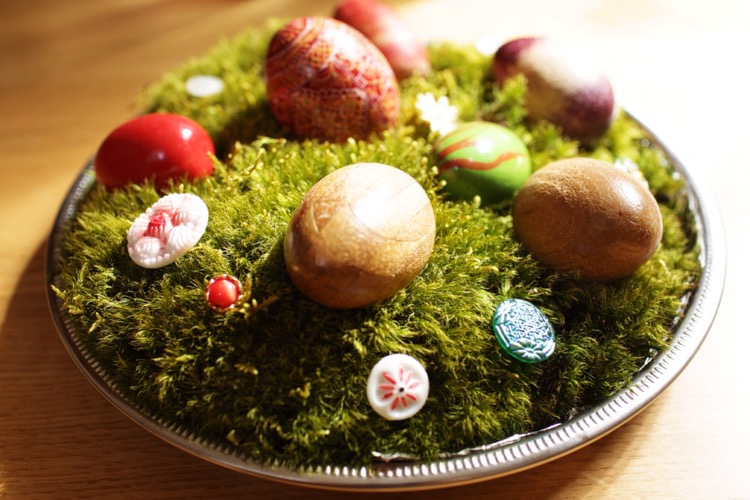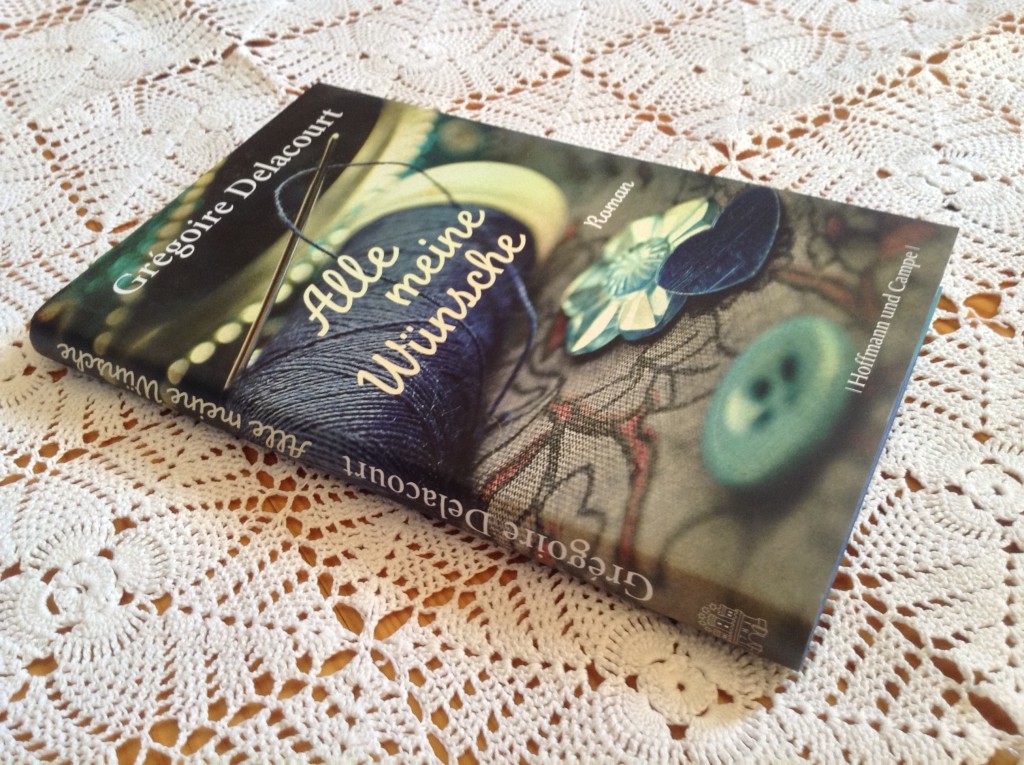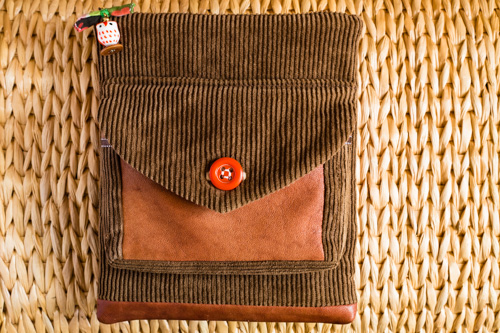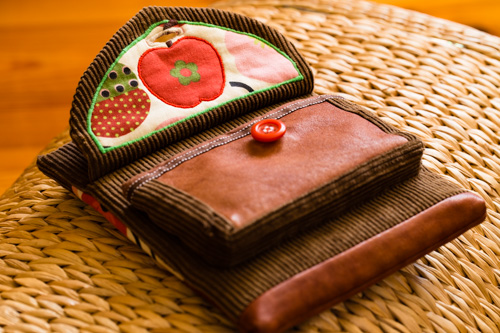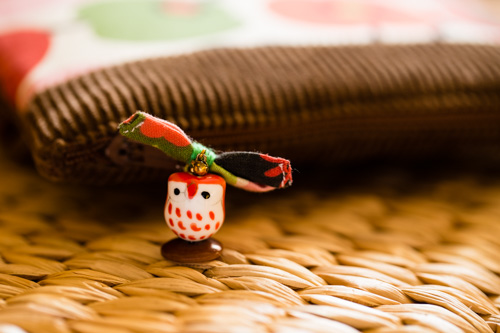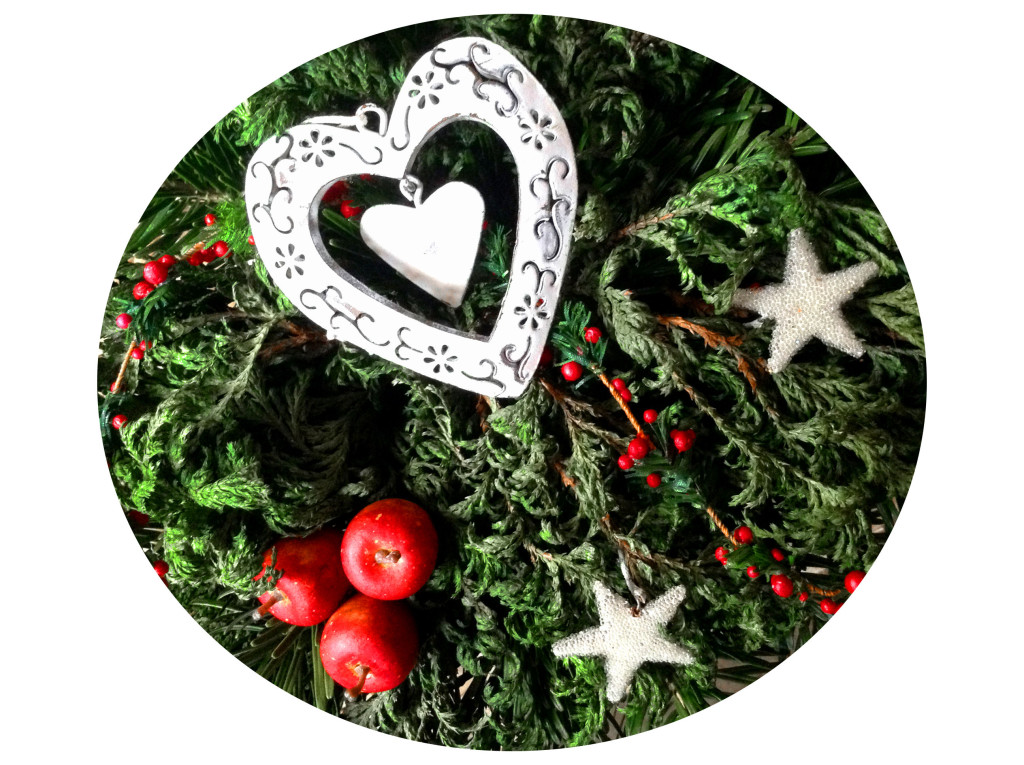Hey everybody! Today’s article is not about crafts, but about my second passion: language. To be precise, this is about rhubarb. In case you’re wondering what the heck I’m talking about, let me explain.
Yesterday, I had this unbelievably delicious dessert made from this year’s first freshly harvested rhubarb from my Mum’s garden. And while enjoying the yummy treat, I remembered this little video I had seen a while ago. (It’s in German only, but I hope you like it anyways!)
Kudos to the voiceover lady. Can you imagine how many takes she must have needed to get this right?
This is my attempt to translate the story told in the video. Now, I know I’m bending English grammar rules a bit here with the compounds, but that’s exactly the point. I guess you still get the meaning, though.
In a little village, there once lived a girl called Barbara. Barbara was widely known for baking a delicious rhubarb pie. That’s why people also called her “Rhubarb Barbara”. Rhubarb Barbara soon realized that she could make money with her pies, so she opened a bar and named it the “Rhubarb Barbara Bar”.
The Rhubarb Barbara Bar flourished and quickly gained some regular customers. The bar’s most famous customers were three Barbarians. They came to the Rhubarb Barbara Bar very often to eat Rhubarb Barbara’s delicious rhubarb pie, so that everybody started to call them the “Rhubarb Barbara Bar Barbarians”.
The Rhubarb Barbara Bar Barbarians all had very pretty beards, and when the Rhubarb Barbara Bar Barbarians wanted to have their beards groomed, they went to the barber. There was only one barber capable of grooming these Rhubarb Barbara Bar Barbarians’ Beards, and he was called the “Rhubarb Barbara Bar Barbarians’ Beard Barber”.
The Rhubarb Barbara Bar Barbarians’ Beard Barber also liked to visit the Rhubarb Barbara Bar to eat a piece of Rhubarb Barbara’s delicious rhubarb pie. With the pie, he always had a beer, and he solemnly called it his “Rhubarb Barbara Bar Barbarians’ Beard Barber’s Beer”.
Only one particular bar offered the Rhubarb Barbara Bar Barbarians’ Beard Barber’s Beer and the woman who sold the Rhubarb Barbara Bar Barbarians’ Beard Barber’s Beer at the counter of the Rhubarb Barbara Bar Barbarians’ Beard Barber’s Beer Bar was named Bärbel.
And so, the Rhubarb Barbara Bar Barbarians went together with the Rhubarb Barbara Bar Barbarians’ Beard Barber and the bartender called Rhubarb Barbara Bar Barbarians’ Beard Barber’s Beer Bar Bärbel to the Rhubarb Barbara Bar to eat a piece of Rhubarb Barbara’s delicious rhubarb pie and have a bottle of ice-cold Rhubarb Barbara Bar Barbarians’ Beard Barber’s Beer.
Cheers!
For me, this is perfect proof that language is such a funny, entertaining and fascinating subject – even for people who do not sleep with a dictionary stuffed under their pillows. (And I’m not saying that I do. I’m also not saying that I don’t.)
Because what this light-hearted little video shows is actually a particularity of the German language that does not exist in any other language, as far as I know. In German, you have the possibility to just chain together two nouns to create a new word with its very own meaning that is grammatically correct and makes perfect sense (even though it does become quite a mouthful at some point). I think this is pretty cool, isn’t it?
Now, you can find me in the garden where I’m practicing to say “Rhabarberbarbarabarbarbarenbartbarbierbierbarbärbel” (“Rhubarb Barbara Bar Barbarians’ Beard Barber’s Beer Bar Bärbel”). How often can you manage without messing up? Let me know in the comments!
See you soon!
Kati
